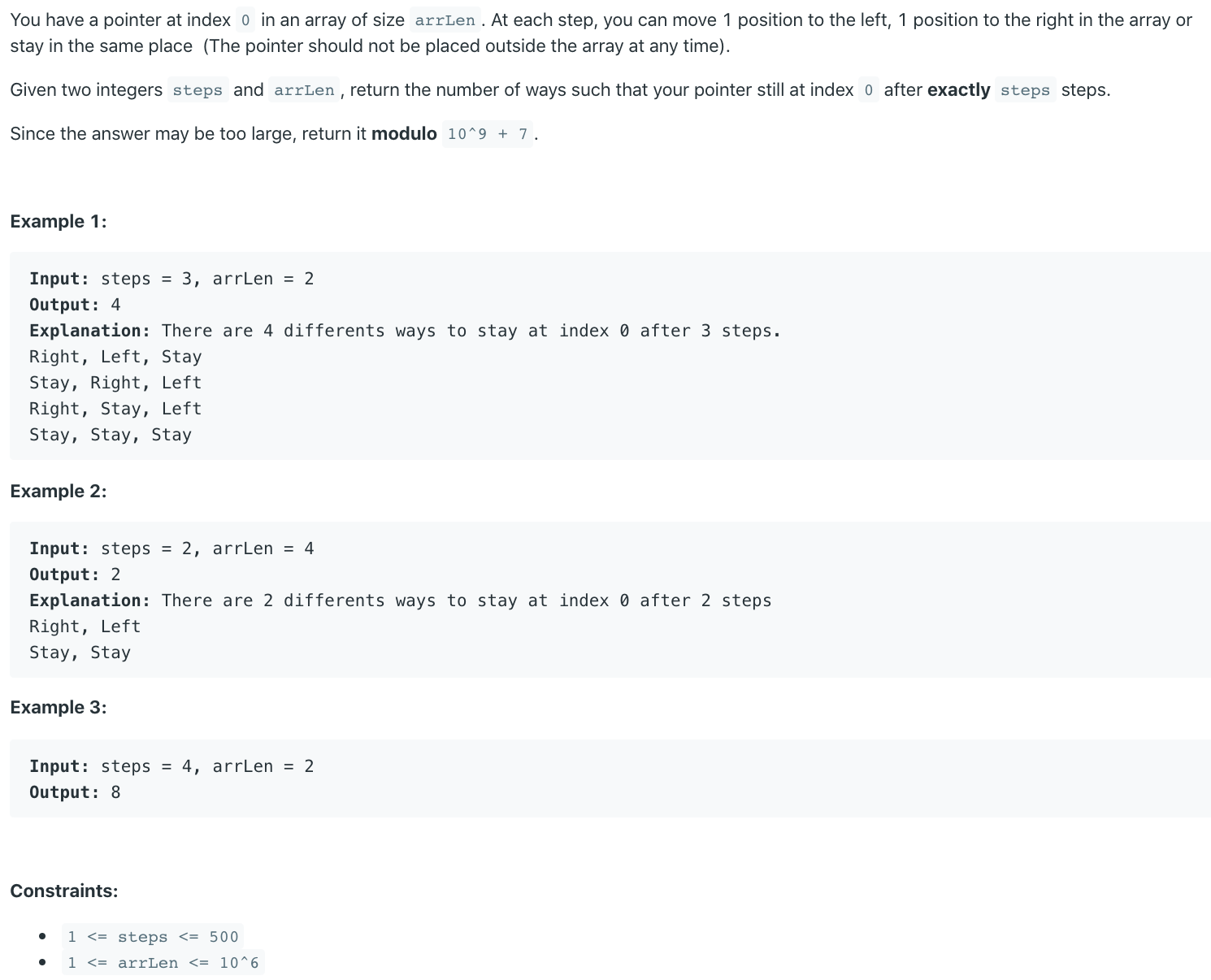Number of Ways to Stay in the Same Place After Some Steps

# Solution
First of all, that's a long title 😂
This problem is actually hard if done in DP, but DFS is easier.
Let be the number of steps.
# DFS
fail on LeetCode
There is a similar problem on LintCode (opens new window) but would pass b/c the steps is only upto 15. However, on LeetCode, the DFS solution would fail when steps is upto 500.
Base conditions for DFS recursion:
posout of array, return0stepsis 0 and returnpos == 0(could further be simplified to:if pos == steps: return 1)pos > steps, not enough steps to go back to starting point, return0(this condition prunes some branches and would avoid TLE at inputsteps=15,arrLen=8)
If we don't have the condition if pos > steps to eliminate branches, would TLE on input steps = 15, arrLen = 8.
Complexity
time:
space: (implicit stack space is the max width of tree)
def numWays(self, steps: int, arrLen: int) -> int:
mod = 10**9 + 7
def dfs(steps, pos) -> int:
if pos < 0 or pos >= arrLen:
return 0
if steps == 0:
return pos == 0
# can't get back
if pos > steps:
return 0
return (dfs(steps-1, pos) + dfs(steps-1, pos-1) + dfs(steps-1, pos+1)) % mod
return dfs(steps,0)
2
3
4
5
6
7
8
9
10
11
12
13
14
# Recursive DP - Cheating
Basically the same as DFS, but cache the calculated values using decorator lru_cache in functools to store some branches' result.
Import:
from functools import lru_cache
Use:
@lru_cache(None)
def dfs(steps, pos) -> int:
# same as before
2
3
# Recursive DP (REDO)
C++ https://leetcode.com/problems/number-of-ways-to-stay-in-the-same-place-after-some-steps/discuss/436117/C%2B%2B-Recursive-DP-(Memoization)
Python https://leetcode.com/problems/number-of-ways-to-stay-in-the-same-place-after-some-steps/discuss/436677/Python-DP